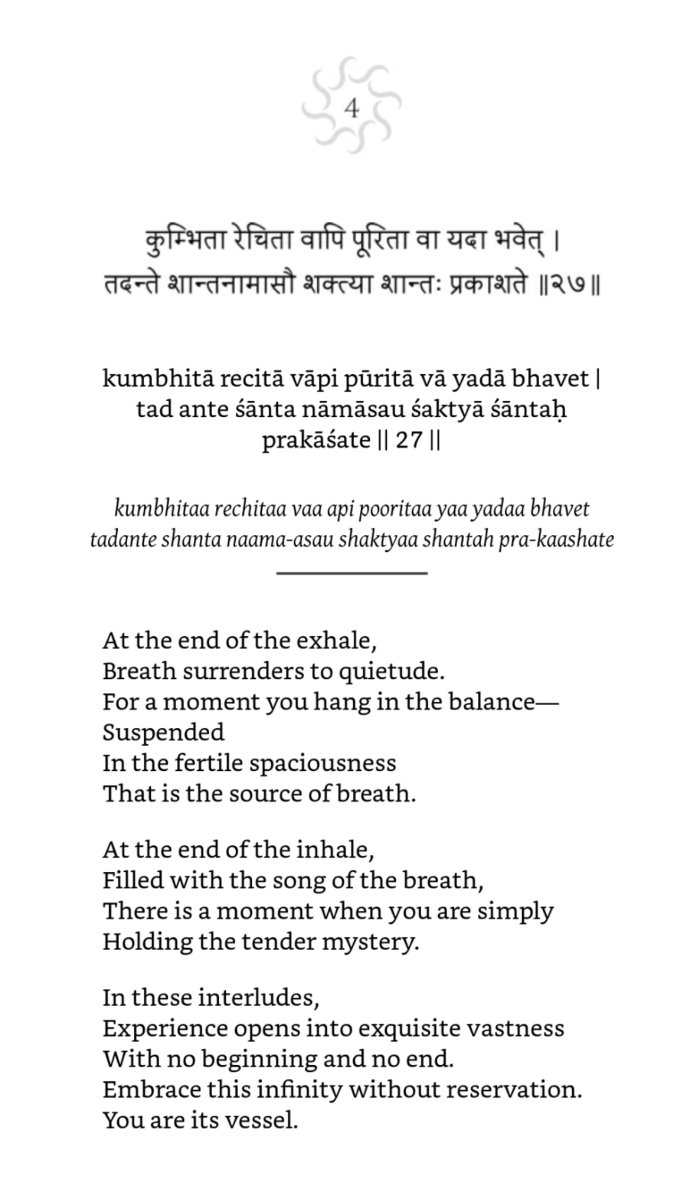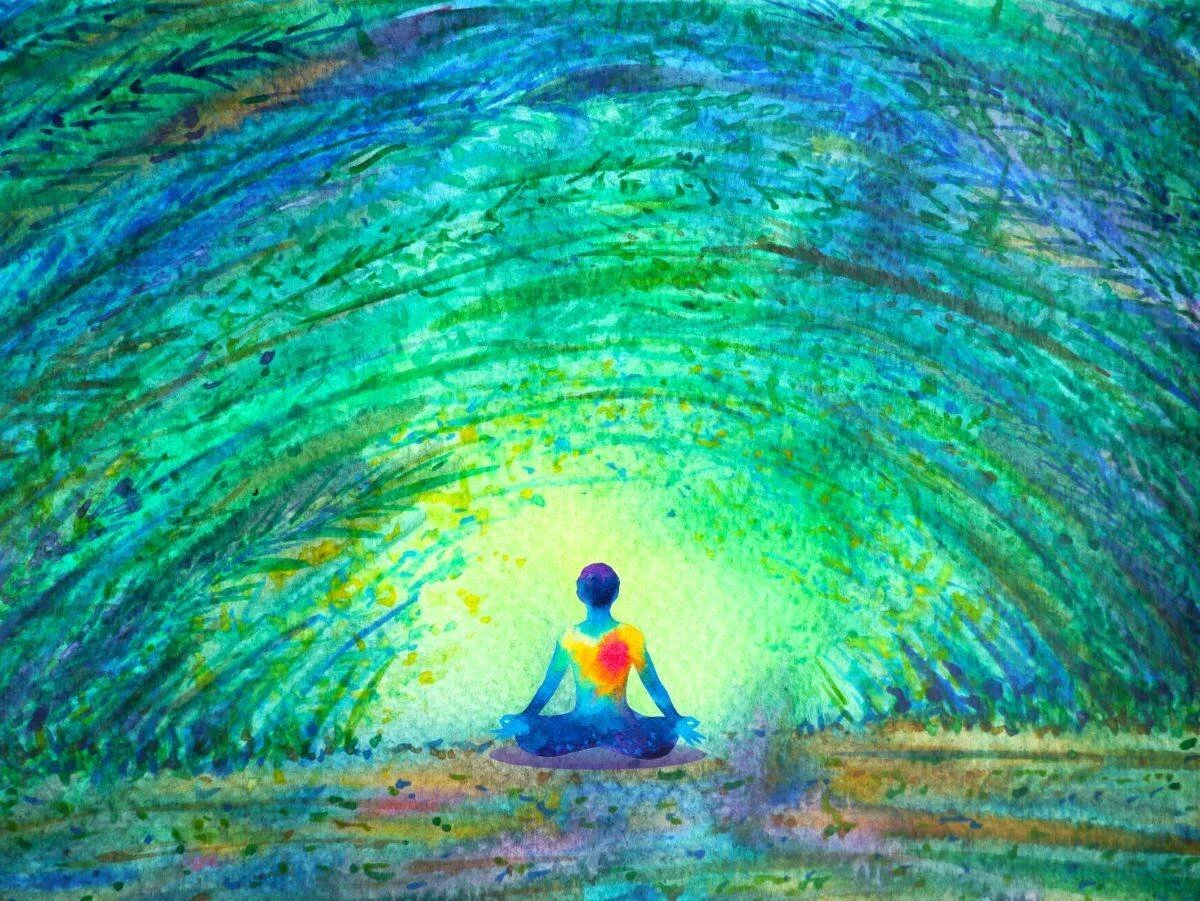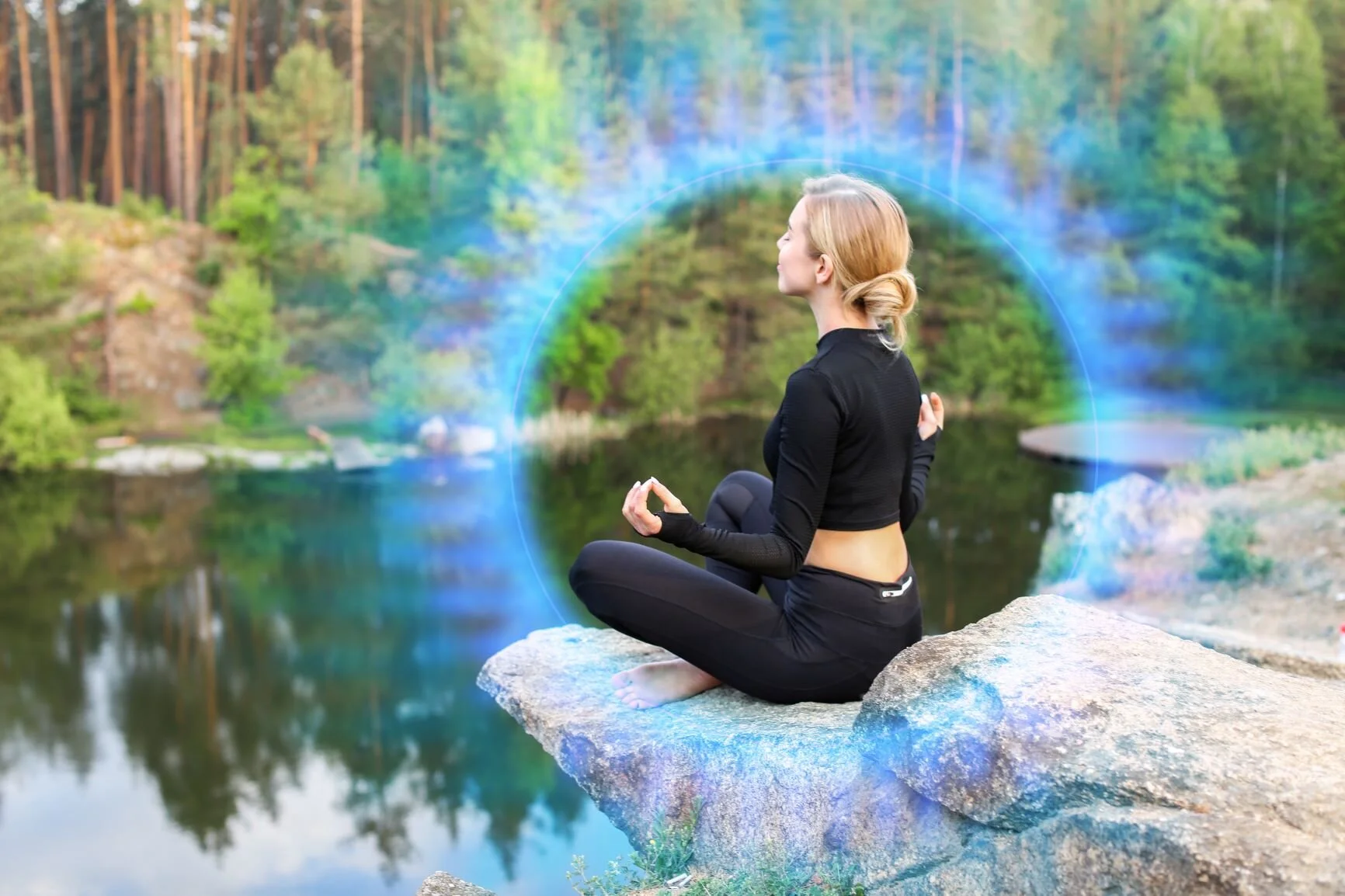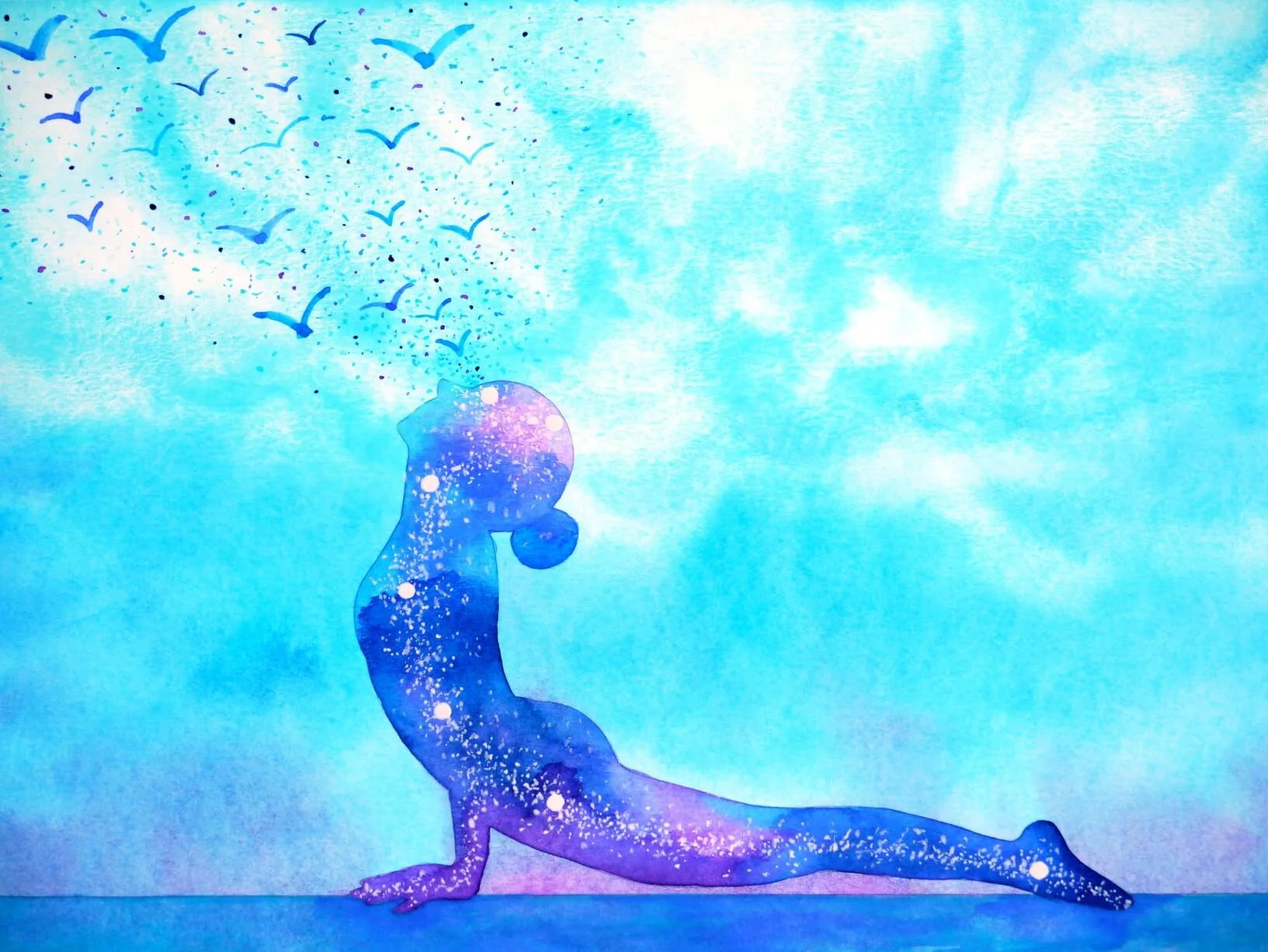There are moments when we stop taking life for granted and inhale deeply of the beauty that is around us. A cleansing breath drawn at glorious dawn; savoring the bouquet of a glass of fine wine before dinner; or, nestled in a lover's arms, surrendering to his or her smell-at such moments, you take life deeply into yourself and are intimate with something great. In the time it takes to breathe in and breathe out, you touch life and are touched by life intensely.
Miracles happen if you continue this appreciative awareness beyond the 3 or 4 seconds that such a moment usually lasts. To spend even 15 seconds in the same state, or 60 seconds, seems like a lifetime. And it can transform you.
Breath is a gift from God, a gift from the oceans and forests, from the universe. Breathing is, in fact, a relationship you are having with the natural world-a physical exchange with the sea of air surrounding the Earth. When you cultivate this relationship by attuning yourself to it, you are developing a gift that can bring you a lifetime of joy.
We can be interested in breath taking, fascinated by it, in the same way we are charmed by food, enchanted by sex, amazed by music. Most of the skill of aware breathing is in finding your pleasure circuits, those sensory pathways that light up when you breathe. Work at this; make a conscious effort to engage in your favorite activities with extra gusto and attentiveness. The more you link your adventures in breath to what you love--whether it is food, sleep, kids, horses, dancing, sex, or music--the better.
In my life, I am greatly inspired by yoga in all its forms. I draw on it deeply. But I don’t always use yoga terminology, nor imitate its methods to teach about breath. Rather, I present explorations you can do on your own, in the midst of your everyday life, so that you can develop your own yoga-- what works for you to develop harmony between body, mind, and spirit.
Yoga is a Sanskrit word meaning "union," or joining together. The discipline of yoga is concerned with joining together all the elements of human life into one seamless, harmonious whole. The word is derived from an ancient Indo-European root, yeug, which occurs in English in the form of yoke, jugular, conjugate, subjugate, conjugal, enjoin, injunction, juxtapose, and syzygy.
The yoga tradition of India is astounding in that followers for several thousands of years have made a dedicated effort to notice and record every possible breathing technique and have accumulated a vast repertory of methods. They have cherished each insight into breath they have come across and formulated it into a short pithy statement, or sutra, so that it can be memorized and passed on from generation to generation.
Yoga techniques have been developed for every human activity. There is the yoga of work, the yoga of war, the yoga of eating, the yoga of meditation, the yoga of sex, the yoga of devotion to God, and thousands more. There is more to yoga than can be explored in one human lifetime, or even a hundred, and there is more variety than any one human being can comprehend.
There is, however, one overall impression of yoga that predominates in the popular mind: that of the reclusive yogi, celibate, poor, living apart from society in a cave or ashram on a mountainside. There is a lot of truth to this archetype, and indeed yogi monks have done much great exploration. Their work has been so powerful that their approach--denying life, denying sexuality, and in general doing the things that monks are supposed to do-- permeates all of yoga. In other words, subjugation has been emphasized over conjugation.
As a meditation instructor, the approach I favor is to help people focus on becoming intimate with their own breath. When people tune in to their unique ebb and flow, they either invent the techniques they need to stay focused, or they are instinctively drawn to those that already exist and that naturally speak to them. This method of learning about breath may or may not be slower, but it's definitely more gentle than attempting to forcefully discipline your respiration.
The best things in life really are free. And if you are breathing easily while doing them, then they are even better. As we move through this mystery we call life, we are smitten often with different cravings: we want relief, stimulation, good food, companionship, a real vacation, and much more. It seems as if we would have to spend a lot of time or a lot of money to get these things. Maybe so. But first you should explore what is right here, free for the taking, ready to enhance your health and your life right now.
For millennia, people all over the world have found breathing to be invaluable for inspiring and healing. This is the message from all the ancient traditions, from Buddhism and the Sufis to Zen and the Vipassana monks with their beautiful walking meditations. Even today, singers and athletes testify that they can do what they do because they are centered in breath.
Breath is everyone's birthright. Its secrets are out in the open, under your nose, and inside you. I am convinced that the more people who know the secrets of conscious breath taking, the better. So take a deep breath--and let's begin.
From Breath Taking by Lorin Roche, PhD
We will offer a special workshop on breathing on October 3-4, 2020.














